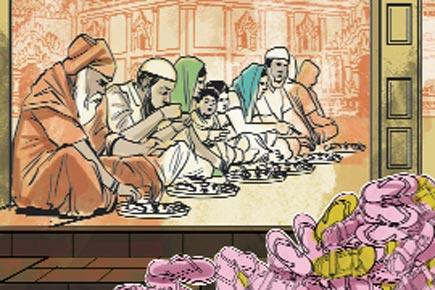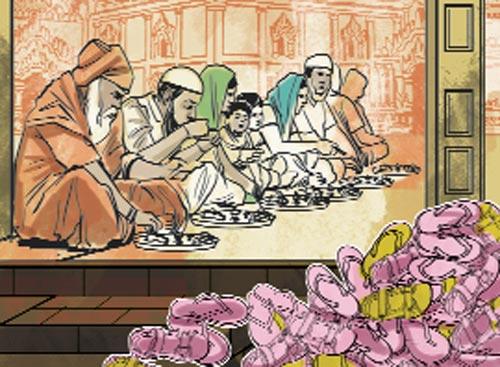I read two stories last week, which made me wonder about how we now respond to stories


Illustration/Ravi Jadhav
ADVERTISEMENT
 I read two stories last week, which made me wonder about how we now respond to stories. A designer who works with rural craftspeople posted a striking photograph of pink and yellow leather chappals.
I read two stories last week, which made me wonder about how we now respond to stories. A designer who works with rural craftspeople posted a striking photograph of pink and yellow leather chappals.
She had designed and commissioned them in March. Three months later, on delivery, she learned that the Dalit community which makes these slippers, is now suddenly being criminalised for its traditional work, thanks to the new cattle slaughter laws. The craftsman told her how he had purchased the leather at some risk to his life from Agra, a hub of leather production, where many different groups are rendered vulnerable or ruined, laws and extra-judicial activity. Protest and appeal were not seen as realistic, viable options by the craftsmen. They hoped to somehow survive in this precarious, grey zone, getting by without violent outcomes.
On sharing the story, comments devolved into the state of the nation; into commentary on how everything was stupid and polarised. Into the liberal versus right-wing discussion. This discussion has urgency for all kinds of reasons. For those focused on conducting all debates along that axis, belief and self-identity are involved.
Yet, it makes me wonder, where this leaves the people whom the story is about. When our utterances are all organised around that polarisation, are we not also submitting and perpetuating it, even if on behalf of those who suffer? Do all stories then, somehow cease to be themselves and get made an example of? Categorised around the poles??
Here is the other report I received. The Lekshmi Narasimha Murthy Vishnu Temple in Malappuram had an iftar party. Yes. This was part of its Punaprethishta (restoration) rituals ongoing from May 29,till July 4. Five hundred people participated — 400 Muslim people and 100 from other communities. The restoration work was funded by 300 Muslim families as the temple is in Vettichira, a Muslim dominated region. Oh! The iftaari was vegetarian, by the way (in a state where people are currently making jolly pronouncements about eating beef in defence of federalism). It sounds like a cheerful, gorgeously warm party this one.
This story happened in India. That story happened in India. There are many more we don't tell or hear because we have forgotten how to listen to stories it seems. It's as if we see the world as one big newshour debate, to be won or lost. Everyone is now an actual or notional panelist in that grid of panelist boxes shouting in the electronic tower of Babel. Everyone's a speaker, no one's an audience, a listener, open to another report of what's going on in the world.
What might happen if we actually did that, I wonder? Allowed the stories to nestle in contradiction, allowed them to seep into reality, allow a place for human emotion in determining actions?
In these times of warriors and warfare, this talk of love and emotion, this telling of tales — it all seems a bit namby pamby, hai na? In these times of digital analytics, it seems wispy, hard to enumerate in its impact. In a time of constant scrutiny, it seems ephemeral, hard to pin down. Just a fantasy. But perhaps that's its radical heart. Maybe refusing to play this adversarial game, batting side or bowling, is how we queer the pitch. Imagine.
Paromita Vohra is an award-winning Mumbai-based filmmaker, writer and curator working with fiction and non-fiction. Reach her at www.parodevipictures.com
 Subscribe today by clicking the link and stay updated with the latest news!" Click here!
Subscribe today by clicking the link and stay updated with the latest news!" Click here!






